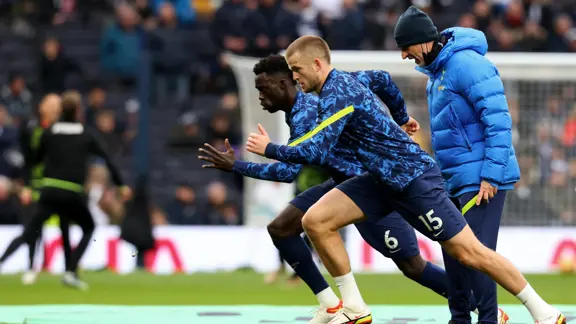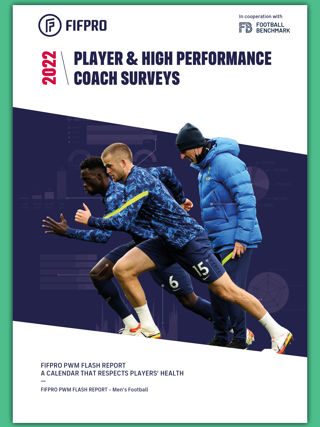Toolkit Chapter
Professional footballers want rules to guard against heavy workload, survey shows

FIFPRO survey results released today show professional footballers are clearly in favour of new regulations to address the increasing match congestion and travel burden at the top of the game.
The survey of 1,055 players and 92 performance experts shows both groups support new measures that would guarantee a minimum-length offseason break and limit repeated back-to-back games. Only 26 percent of players want to maintain international windows as they are.
Meanwhile, 82 percent of the performance experts, half of whom have national team experience, said they have witnessed overload causing players mental health and lifestyle issues.
The report’s foreword, which says players “are athletes, not machines”, is signed by player representatives from across the world including Arturo Vidal (Inter Milan and Chile), Leonardo Bonucci (Juventus and Italy), Maya Yoshida (Sampdoria and Japan) and Saliou Ciss (AS Nancy and Senegal).
Data compiled from the FIFPRO Player Workload Monitoring (PWM), a public platform created with Football Benchmark, highlights the load on individual footballers even as an expanded UEFA Champions League from 2024 is set to further increase pressure on players.
-
At the end of 2020, Luka Modric (Real Madrid and Croatia) played 24 matches back-to-back with less than five days rest between each one.
- Harry Maguire (Manchester United and England) played 19 matches back-to-back with less than five days rest between each one.
Other players who participated in 20 or more back-to-back match streaks included Georginio Wijnaldum (Paris Saint-Germain and Netherlands) and Ivan Perisic (Inter Milan and Croatia).
The 1,055 players surveyed include those from leagues in England, France, Italy and Spain.
- 55% said they got injured because of an overloaded scheduled
- 40% said that a congested calendar affected their mental health
- 50% said their club or national team had cut short their offseason
More than 72% said that the number of consecutive back-to-back games should be limited to four, with half saying a mandatory break should be imposed after three.
On international-match windows, 46.5% would prefer them to be longer but less frequent, compared to 25.7% who would not. The remaining 27.7% were unsure.
Players who experience some of the most travel have told FIFPRO of their concerns about the implications of repeated trips on mental and physical health.
Arturo Vidal (Inter Milan and Chile) said: “Long-distance international travel puts pressure on the health and performance of many players because of the sudden changes in climate and time zones. Some players have travelled more than 200,000 kilometres in the last three seasons – that’s like travelling around the world five times.”
Saliou Ciss (AS Nancy and Senegal): “It’s important to be aware that these journeys which, to tell the truth, I don’t make in optimum conditions worthy of a high-level athlete add to the fatigue. They take their toll on our bodies and sometimes sap the morale of even the most courageous of us.”
🗣🎙 Nicolás Tagliafico: “Your mind isn't focussed on resting.”
— FIFPRO (@FIFPRO) May 24, 2022
Like others who play club and national team football in different continents, this season has tested @Nico_Taglia's limits, due to the added pressures of long-distance travel and short breaks. #AtTheLimit
The 92 high-performance experts – including sports scientists, doctors and conditioning coaches - support the views of players that the current level of matches in elite football without protective regulations poses risks to mental and physical health.
More than one in three footballers in a sample of 265 players on the PWM platform played at least 55 matches in the season before the pandemic.
That amount of games is too much, according to 88 percent of the experts.
Many of today’s top players face far more intensive schedules than the last generation.
- Raheem Sterling (Manchester City and England) has played at least 50 matches in seven out of 11 seasons at the age of 27.
- Ryan Giggs (Manchester United and Wales) reached 50 games in only six of 24 seasons before ending his playing career at the age of 40.

